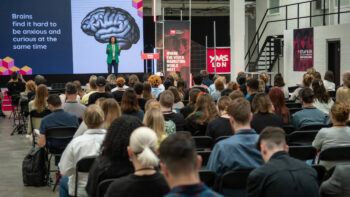
HOW GEN Z’S ATTITUDE TO SEX AND DATING IMPACTS THEIR SPENDING HABITS
Voxburner Content Team
As Valentine’s Day approaches, we wanted to find out how a new generation of young adults views sex and dating, and how this impacts their purchasing decisions. Partnering with Student Beans, we surveyed over 5000 students across the UK and US to discover their attitudes on everything from dating apps and sexting to the ideal first date, and what they want from a partner.
Coupling up is on the up
49% of the 16- to 24-year-old UK students surveyed were in a monogamous relationship with one person, compared to 40% single and 10% casual dating. Getting into a serious relationship at a young age can affect their spending habits, for example those in couples are likely to spend more on home activities and dining in, rather than nights out at bars, pubs or clubs. Industries such as food and home entertainment can capitalise on this homebody trend, while restaurants and events brands should focus on tempting young couples out for a special, romantic evening.
Dating apps are not for dating
While dating apps are popular with Gen Z students in the UK and US, only just over half of those who have signed up to one have actually used online dating to arrange a date or hookup. While this suggests the apps are used more for browsing than dating, this nonetheless means they can be an effective way of reaching Gen Z through advertising, especially for products relevant to sex and dating. Our survey found that Tinder is by far the most popular app on both sides of the Atlantic, with Bumble in second place.

Valentine’s according to Gen Z
Although attitudes to dating have changed, those young people who choose to celebrate Valentine’s Day do so in a surprisingly traditional way. Of UK students who celebrated last year, 52% went on a date, 38% gave a present, and 37% gave a card. Again following the homebody trend, 37% spent a romantic evening at home. As for their ideal Valentine’s gift, there were big differences between male and female students. The women picked flowers, chocolate and jewellery, while men would prefer clothes/shoes/accessories or tech products – not traditionally associated with Valentine’s Day.
The growth of Galentine’s
A few years ago, only fans of Parks and Recreation had heard of Galentine’s Day. Now, 34% of female students say they have celebrated Galentine’s, the female empowerment alternative to Valentine’s. The most common ways to celebrate are going out for dinner or drinks, more than twice as popular as buying a card or present for their BFF. This means there’s a big opportunity for restaurants and bars to engage young women with Galentine’s inspired special offers and marketing campaigns.
Dating for the 2020s
One area which male and female students in both the UK and US are agreed on is what makes an enjoyable first date. They all chose an activity such as cinema or bowling as their top choice, followed by dinner at a nice restaurant. This reflects how young people expect dating to be fun, not restricted by old-fashioned ideas of what constitutes a romantic setting. It also correlates with their value of experiences over possessions, and the rise of themed events and quirky days out, from Secret Cinema to Go Ape – both of which offer exclusive discounts to students via Student Beans.

The secrets of sex
Our survey found that students, and especially male students, are not comfortable going to medical professionals with their questions about sex. Instead, they look to Google search, websites and blogs for information. This creates a marketing opportunity for brands with a connection to sex, dating or health. By offering useful and trustworthy information and advice, brands can strengthen their relationships with consumers and fill an older sibling role, becoming the go-to source when confused young people have worries in future.
To learn more about marketing to students and opportunities to partner with Student Beans to engage this powerful consumer group, click here.



